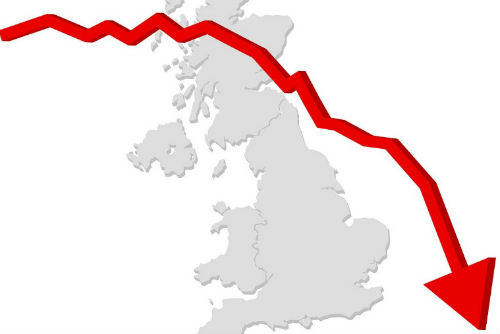Though UK fuel export tariffs are set to rise to 4.7%, import tariffs will be set at 0%. Oil refineries are warning this would put them at a competitive disadvantage.
A confidential government document leaked over the weekend set out in stark terms what the UK faces in the event of a no-deal Brexit on 31 October – with warnings of food, fuel and drug shortages.
The government has set out plans to help cope with these eventualities.
But its plan to avoid fuel shortages could only compound the problem, the country’s oil refineries are warning.
Earlier this year, the government set out plans to cut most import tariffs to 0% in the event of a no-deal Brexit, in an effort to avoid any sudden cut-off. This would include fuel.
The problem is that other countries are likely to dramatically increase tariffs on UK exports. Fuel exports from the UK are expected to be subject to a 4.7% export tariff if the UK defaults to World Trade Organization rules. All imports and exports between the EU and UK are currently tariff-free.
The UK Petroleum Industry Association is warning that failing to match these tariffs with equivalent import tariffs would put UK oil refineries at a competitive disadvantage.
The leaked government document predicts that the increased export tariffs will result in two of the country’s six oil refineries being shut down. The UK exports about 30% of what its refineries produce.
A report commissioned by Oil & Gas UK in 2017 concluded that WTO tariffs taking effect in the event of a no-deal Brexit could add around £500 million (€547 million) to the cost of oil trade.
A UK Petroleum Industry Association spokesperson told the Bloomberg news service that if the import and export tariffs are not reciprocal, and fuel imports stood at 0% while exports stood at 4.7%, the UK’s refining industry would face pressure on profitability and possibly be forced into more closures.
All of this comes in the context of falling oil refining margins across Northwest Europe. According to an Oil analytics analysis in June, three out of seven refining configurations in Northwest Europe are losing money in the face of weak demand for crude.
In March the International Energy Agency warned in its medium-term oil market report that “a disorderly Brexit could lead to a reduction in the rate of growth of international trade and oil demand”.
If no-deal Brexit goes ahead on 31 October it will come in the run-up to peak winter demand, which would compound the risk of short-term disruptions of energy imports. It would also come at the same time as a rapid decrease in the value of the pound, which has already begun.
This could simultaneously increase the cost of energy imports, leading to an increase in the cost of energy for households, analysts warn.




